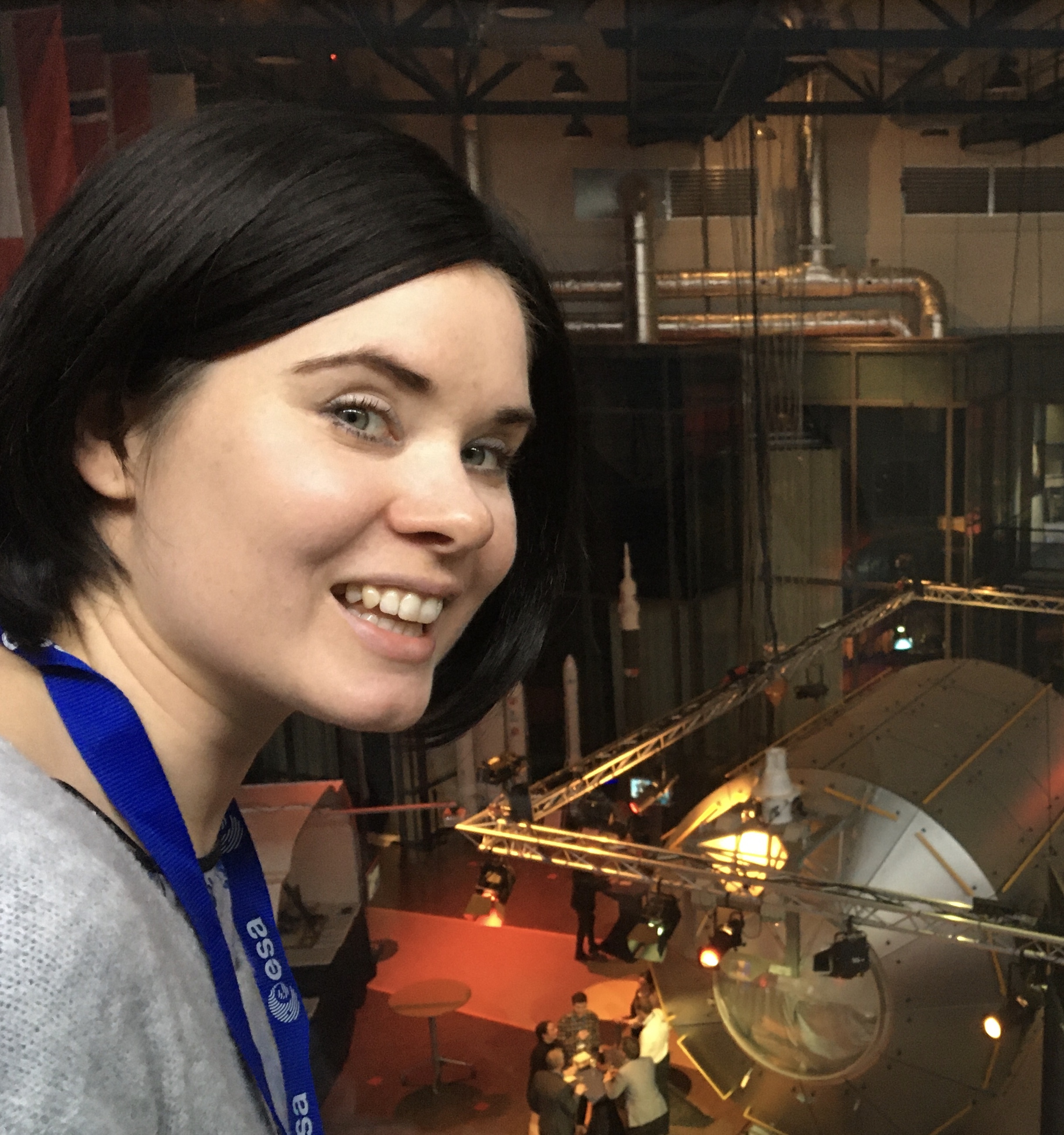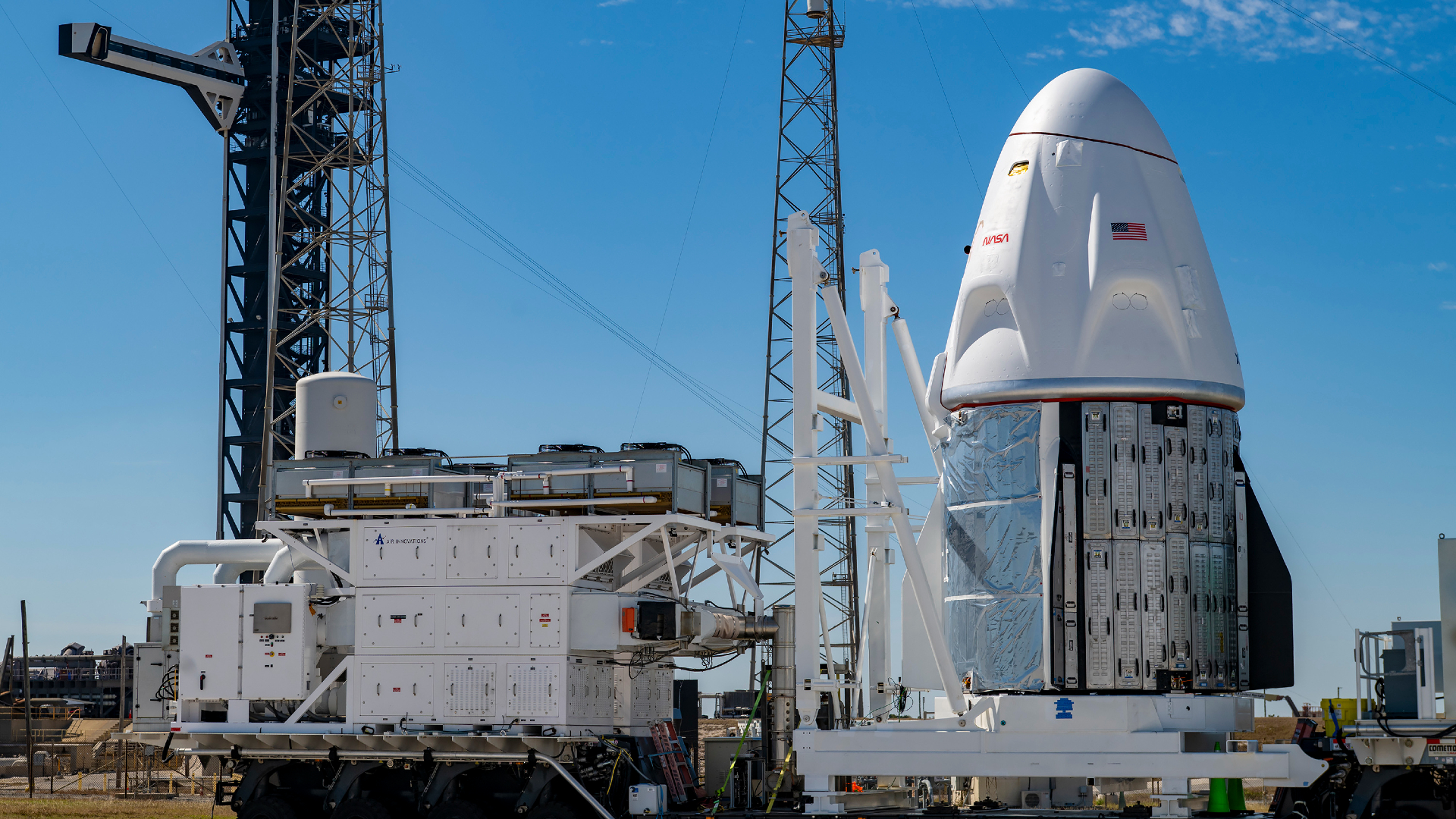Satellite dodges space debris as it scrambles against space weather
As the sun spits out more flares and eruptions, satellites face a double whammy of increased drag and more debris.

Breaking space news, the latest updates on rocket launches, skywatching events and more!
You are now subscribed
Your newsletter sign-up was successful
Want to add more newsletters?

Delivered daily
Daily Newsletter
Breaking space news, the latest updates on rocket launches, skywatching events and more!

Once a month
Watch This Space
Sign up to our monthly entertainment newsletter to keep up with all our coverage of the latest sci-fi and space movies, tv shows, games and books.

Once a week
Night Sky This Week
Discover this week's must-see night sky events, moon phases, and stunning astrophotos. Sign up for our skywatching newsletter and explore the universe with us!

Twice a month
Strange New Words
Space.com's Sci-Fi Reader's Club. Read a sci-fi short story every month and join a virtual community of fellow science fiction fans!
A European satellite that has been scrambling to escape premature death in Earth's atmosphere due to bad space weather has narrowly avoided a collision with a random piece of space junk.
The satellite, part of the constellation Swarm, which monitors Earth's magnetic field, has been climbing to a higher altitude after it experienced increased drag due to changes in the density of the upper layers of Earth's atmosphere that occurred in response to solar activity.
The maneuver, which intended to raise the satellite's altitude by 28 miles (45 kilometers) over a 10-week period, had to be suspended after a piece of space junk raised an alarm at mission control.
Related: Wild solar weather is causing satellites to plummet from orbit. It's only going to get worse
The incident, which happened on June 30, according to a European Space Agency (ESA) statement, required the ground control team to immediately perform an avoidance maneuver to dodge the piece of debris.
According to ESA, the incident highlights the precarious situation in Earth orbit. The problem of space debris has been getting worse and worse, with hundreds of thousands of fragments large enough to kill a satellite currently known to be hurtling around the planet.
As the sun awakens to a period of more intense activity, producing more sunspots, flares and coronal mass ejections than it has done in years, satellite operators face a double whammy.
Breaking space news, the latest updates on rocket launches, skywatching events and more!
As the density of the upper atmosphere increases, satellites have to plod through the thickening gas as if they were flying against wind. Satellite operators therefore need to use on-board propulsion to prevent the satellites from spiraling back down to Earth.
On top of that, experts predict that these same air density changes will lead to a temporary increase in the amount of debris fragments in low Earth orbit, as those fragments face the same increased drag as the satellites, Hugh Lewis, a professor of engineering and physical sciences at the University of Southampton in the U.K. and one of Europe's leading space debris experts, told Space.com in an earlier interview. Unlike the satellites, these fragments are completely out of control.
ESA said the Swarm team eventually completed the orbit-raising maneuver, which will enable the spacecraft to operate safely in the foreseeable future.
Follow Tereza Pultarova on Twitter @TerezaPultarova. Follow us on Twitter @Spacedotcom and on Facebook.

Tereza is a London-based science and technology journalist, aspiring fiction writer and amateur gymnast. She worked as a reporter at the Engineering and Technology magazine, freelanced for a range of publications including Live Science, Space.com, Professional Engineering, Via Satellite and Space News and served as a maternity cover science editor at the European Space Agency.
